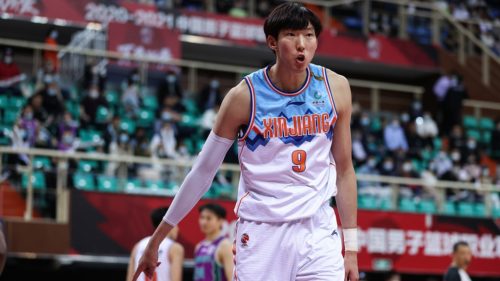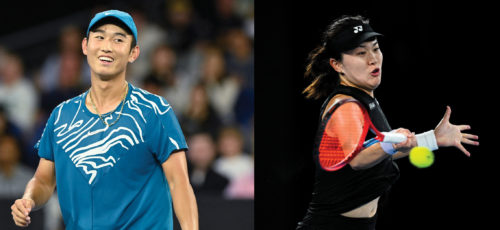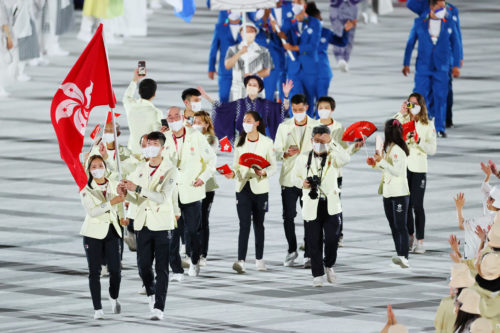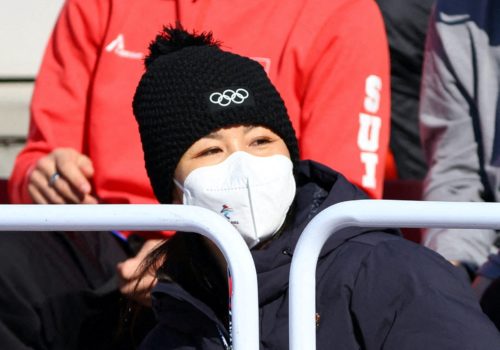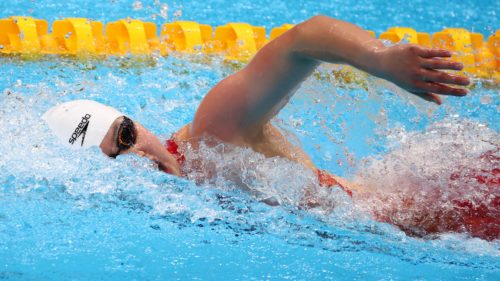Rampant Chinese cheating exposed at the Boston Marathon
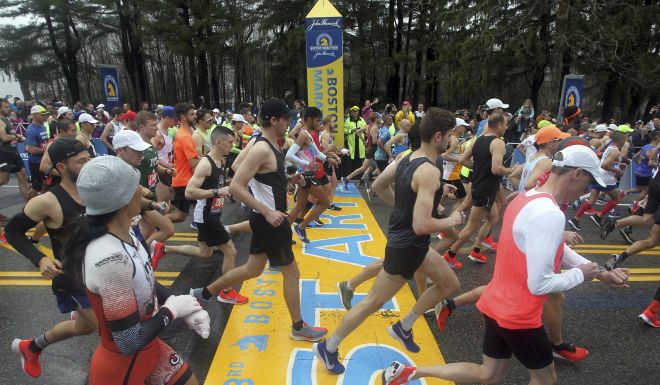
The China Sports Column is a The China Project weekly feature in which China Sports Insider Mark Dreyer looks at the week that was in the China sports world.
If it feels like you’ve heard about Chinese marathon runners being less than honest, you’d be right.
This time, though, it involves the Boston Marathon.
As reported by SCMP, state radio network The Voice of China broadcast a story this week about claims that nearly 100 Chinese runners in this year’s Boston Marathon — from a total of 951 entered Chinese nationals — falsified their previous times in an attempt to bypass the notoriously stringent entry requirements.
The report quoted veteran marathon runner Wang Yiping as saying, “The Boston Marathon has very strict guidelines…and you must reach their lowest threshold to successfully register. As a result, falsification is very common, as well as running on behalf of someone else.”
It further found that the Yan’er Sports travel agency charged 50,000 RMB (US$7,475) per person to cover the entry registration fee for the 2018 Boston Marathon, with the agency handling the entire qualification process, meaning that prospective runners would not have had to submit their own race certificates proving that they had recently met the qualification times for Boston.
Within the past 24 hours, Chinese state media has announced that two runners — only identified as Zhao and Wu — have been banned for life from all road running races sanctioned by the Chinese Athletics Association (CAA), while another man — Mr. Zhang — was handed a similar punishment for giving his bib to someone else.
A search of the official results shows that some runners from China took far longer to finish the race than they were allegedly able to do so.
Among these runners was Zhao Baoying, a 29-year-old woman from Beijing, who would have had to run a marathon in 3 hours and 30 minutes at some point over the past 18 months, yet took 6 hours, 11 minutes to cross the line.
Meanwhile, fellow Beijinger Wu Zhaofeng, 32, must have submitted a recent time no more than 3:00:08 to meet this year’s entry requirements, but recorded an official finish time of 5 hours, 26 minutes.
Given their finish times, and the information uncovered by The Voice of China’s investigation, these two runners are among the most obvious discrepancies, but with only three runners punished by the CAA, what about the dozens of others who allegedly pulled a similar trick?
The investigation further claimed that these allegations, if true, “would shock the global running community, and completely dishonor Chinese runners.”
Would they, though?
Unfortunately, this suspicious pattern fits with other marathon stories from recent years. These include:
- 258 runners caught cheating, most of whom snuck through bushes to run a shorter route (Shenzhen, 2018)
- A woman caught — twice in the same race — cycling parts of the course (Xuzhou, 2019)
- Five runners banned for bib swapping or giving their bibs to other people (Xiamen, 2019)
Banning three people from racing in China is a start, but there’s nothing to suggest those same three can’t keep running — and cheating — in races around the world.
It shouldn’t remain an issue for long, though. With facial recognition being used for all sorts of things in China, it’s already being introduced to road races across the country in an effort to stamp out this sort of behavior.
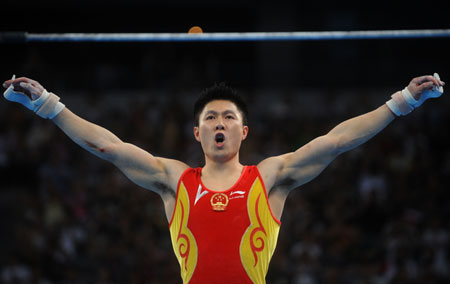
Li Xiaopeng 李小鹏 will become just the fourth Chinese gymnast inducted into the International Gymnastics Hall of Fame (IGHOF) at a ceremony next month in Oklahoma City.
Founded in 1987, just 99 gymnasts have been inducted over the years, with Russia’s Olga Korbut and Romanian legend Nadia Comaneci the only two afforded that honor in the Hall’s first nine years of existence, before the IGHOF board of directors decided to start spreading the love a little wider.
Four more, including Li, will be added this year, joining Li Ning (2000), Ma Yanhong (2008) and Li Yuejiu (2014) as the other Chinese inductees.
The Chinese gymnastics squad has long been one of the global powerhouses in the sport, but Li Ning – who later lit the torch at the 2008 Olympic Games, sparking a huge rise in the share price of his eponymously named sportswear company Li-Ning – Li Yuejiu and Ma Yanhong were among the pioneers in that regard.
Each of them won medals at the 1984 Olympic Games, where China was appearing for the first time since 1952 following a dispute about the political status of the country, while they also won other world titles in the 1980s.
But in terms of sheer medal count, new inductee Li Xiaopeng rules supreme.
Four Olympic golds, another eight at the World Championships, and four more in World Cup competition took him past Li Ning as China’s top gymnast during the Beijing Olympic Games in 2008, before his retirement a year later.
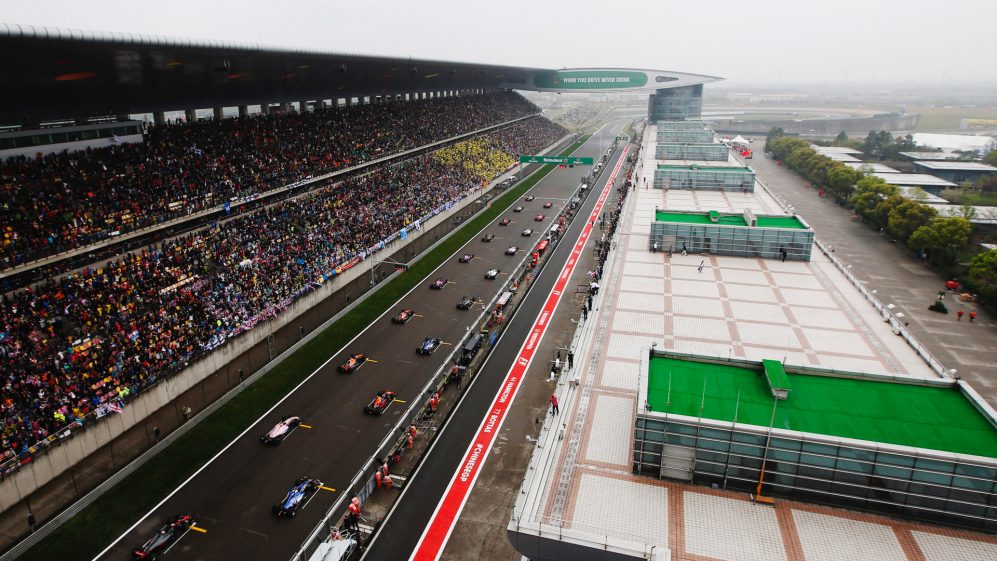
Headlines were made this week about the possible addition of a second Chinese race on the Formula 1 calendar, but a closer inspection suggests it’s little more than wishful thinking on the part of the sport’s organizers.
Commercial boss Sean Bratches was reported to be discussing a possible street race with six different cities in China.
As Bratches will soon find out, though, there will be a lot of positive discussions, plenty of smiles and perhaps even a meaningless MOU or two, but the hefty offers he’ll be hoping for will be less than forthcoming.
While plenty of Chinese cities are looking to promote themselves by hosting international sports events, F1 does not come cheap. Additionally, as written last week, domestic preference will be given to events that also promote the country’s political agenda, with the electric car series Formula E much closer to Beijing’s current policy goals.
China simply doesn’t have a vibrant enough motorsport culture to justify a second race on an already crowded F1 calendar, so if the deal does simply come down to the dollars and cents — something that the current bosses were thought to be moving away from after Bernie Ecclestone’s money-at-any-cost era — then larger checks will be available in other corners of the world.
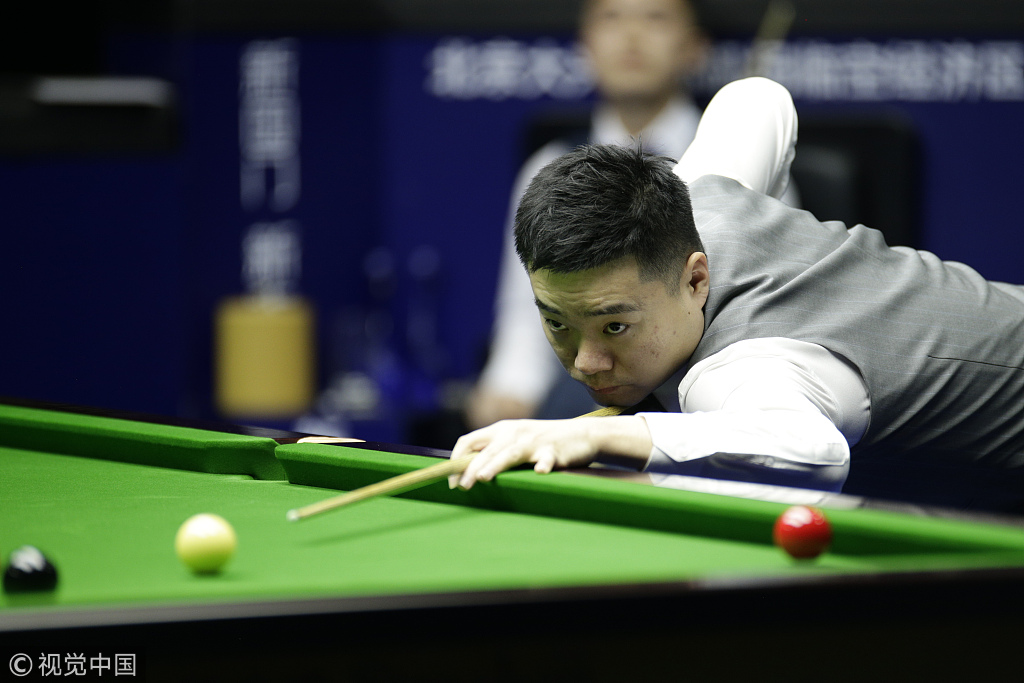
Ding Junhui at World Snooker Championship
China’s athletes and snooker players alike are both looking to impress in international competition this weekend, with a record six Chinese cue masters lining up in the 32-man World Snooker Championship, which started on Saturday in Sheffield, England, while Team China is expected to dominate at the Asian Athletics Championships, which kicks off in Doha on Sunday.
Despite the depth of Chinese players in world snooker, pundits are less optimistic about a Chinese win than in years past, with fan favorite Ding Junhui 丁俊晖 — a finalist three years ago — having fallen to 10th in the world rankings.
Even if he finds his best form, a tricky potential clash with Ronnie O’Sullivan awaits in the quarterfinals.
Meanwhile, keep an eye out for female javelin thrower Lu Huihui 吕会会 as she looks to lay down some markers ahead of the Tokyo Olympics next year.
She broke the women’s Asian record for the sixth time last weekend, with a 67.72m effort that puts her at the top of this year’s leading throws.
Shot putter Gong Lijiao 巩立姣 has even better odds for gold in Doha, but with China still looking for a star athlete to replace Liu Xiang — despite the media’s best efforts to promote sprinter Su Bingtian 苏炳添 — Lu’s discipline is typically more suited to commercial and celebrity success than the shot put.
The China Sports Column runs every week on The China Project. Follow Mark Dreyer @DreyerChina.
